Developer turned global fugitive leaves defective unit owners with an $18 million bill they can’t pay
Hundreds of apartment owners are on the brink of financial ruin, left unable to pay a massive repair bill for the Sydney unit block’s potentially life-threatening defects.
The owners of apartments inside a troubled high-rise in Western Sydney are on the brink of ruin, unable to cover an $18 million bill to replace the building’s highly flammable and potentially deadly cladding.
And the developer behind the complex at 29 Hunter Street in Parramatta is long gone, with NSW Police having issued a warrant for his arrest in 2023.
Ankit Gupta is leading a coalition of owners in seeking a lifeline from the New South Wales Government, saying “we did everything right” in trying to fix the building’s serious defects over the past several years.
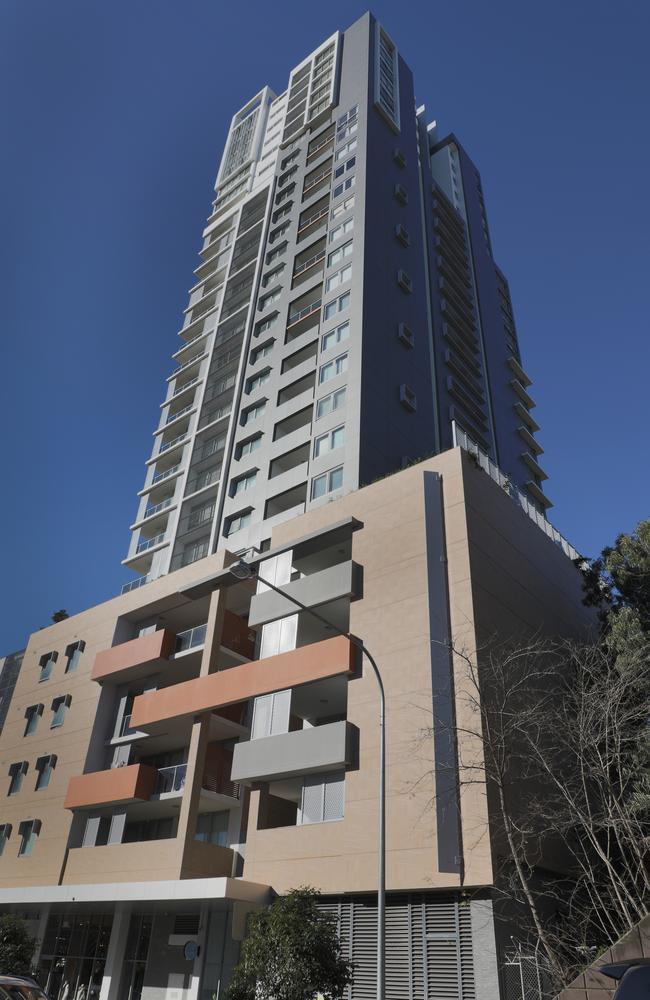
MORE:Dodgy developer Jean Nassif’s $12.5m windfall
When it emerged the building was clad in non-compliant materials that posed a serious fire risk, owners took Toplace Group and its founder Jean Nassif to the Federal Court.
In a landmark ruling, it found the developer knowingly “breached their statutory warranties owed to the owners corporation by handing over a building that had cladding on it that was not compliant with the requirements of the Building Code of Australia”.
Toplace was ordered to cover the cost of removing and replacing the cladding, but weeks later, the company collapsed under the weight of mammoth debts and was placed into administration.
Nassif allegedly fled the country to his native Lebanon, wanted by police for a string of alleged financial crimes related to his business dealings.
“He handed over a building that did not comply with Australian law and left owners with a nightmare scenario,” Mr Gupta told news.com.au.
“For several years now, we have fought to resolve the situation with authorities and in court, but we have not been protected.”



Owners have coughed up about $1 million in expenses for lawyers and consultants over the years, depleting the strata committee’s sinking fund.
Its dire financial position, as well as eye-watering ongoing costs related to maintenance, special levies every few months and hefty insurance premiums, has seen almost two dozen owners default on their bills.
It’s understood some are now facing bankruptcy.
“We’re getting strata bills for thousands and thousands of dollars every quarter,” Mr Gupta said. “It’s a nightmare. The mental stress has taken a toll and we have no way out.”
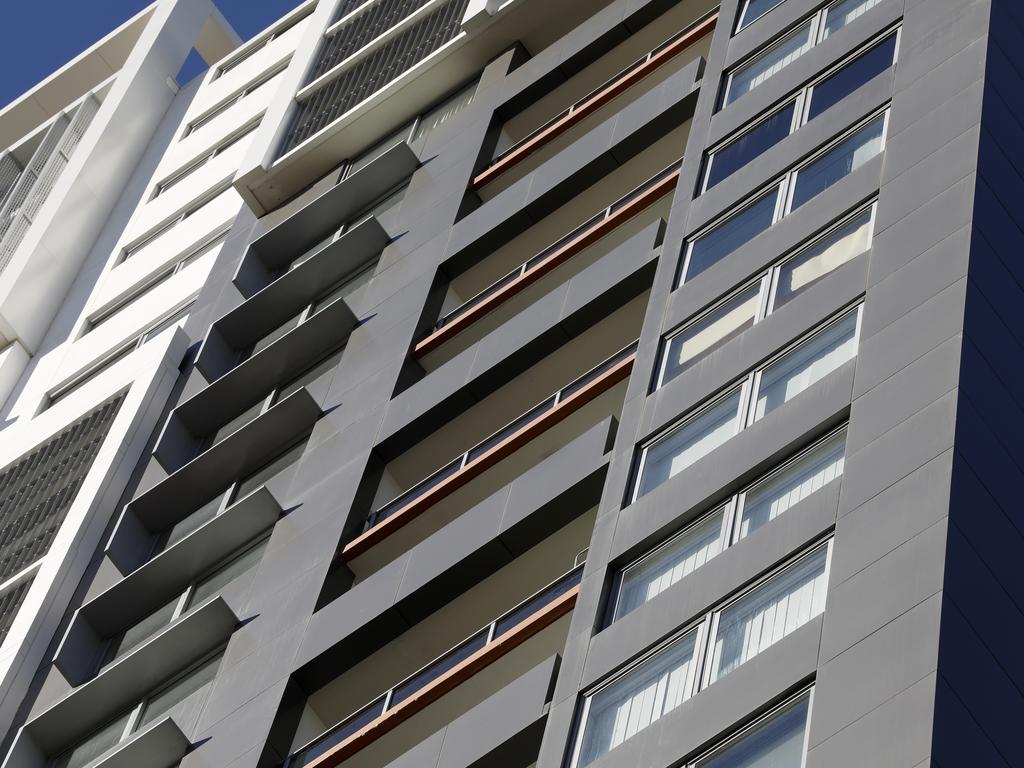
The values of properties in the building have plummeted in the wake of the saga and those who’ve tried to sell face difficulty finding a buyer willing to take on the risk.
Properties at 29 Hunter Street have lost on average up to two per cent of their value each year since the cladding issue was discovered.
A two-bedroom, two-bathroom unit on the 10th floor is currently on the market for $499,000 after being purchased off-the-plan in 2013 for $565,000.
The current median unit price in Parramatta is $630,000.
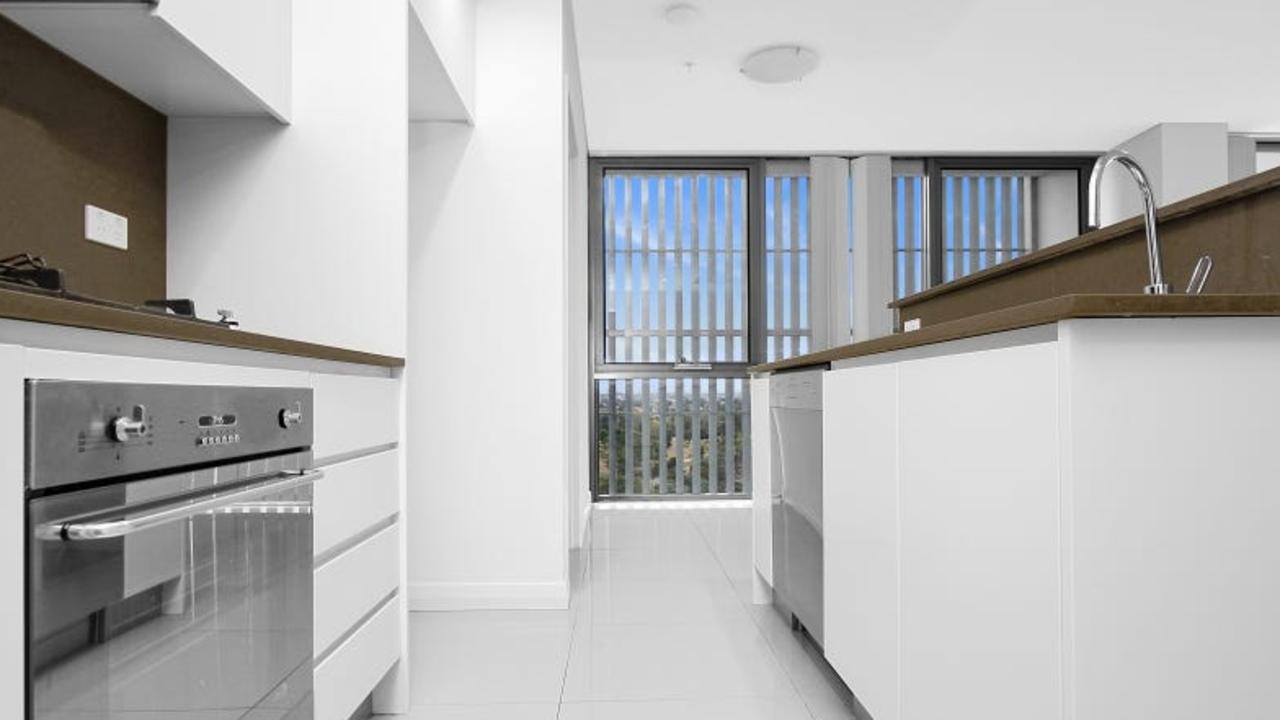
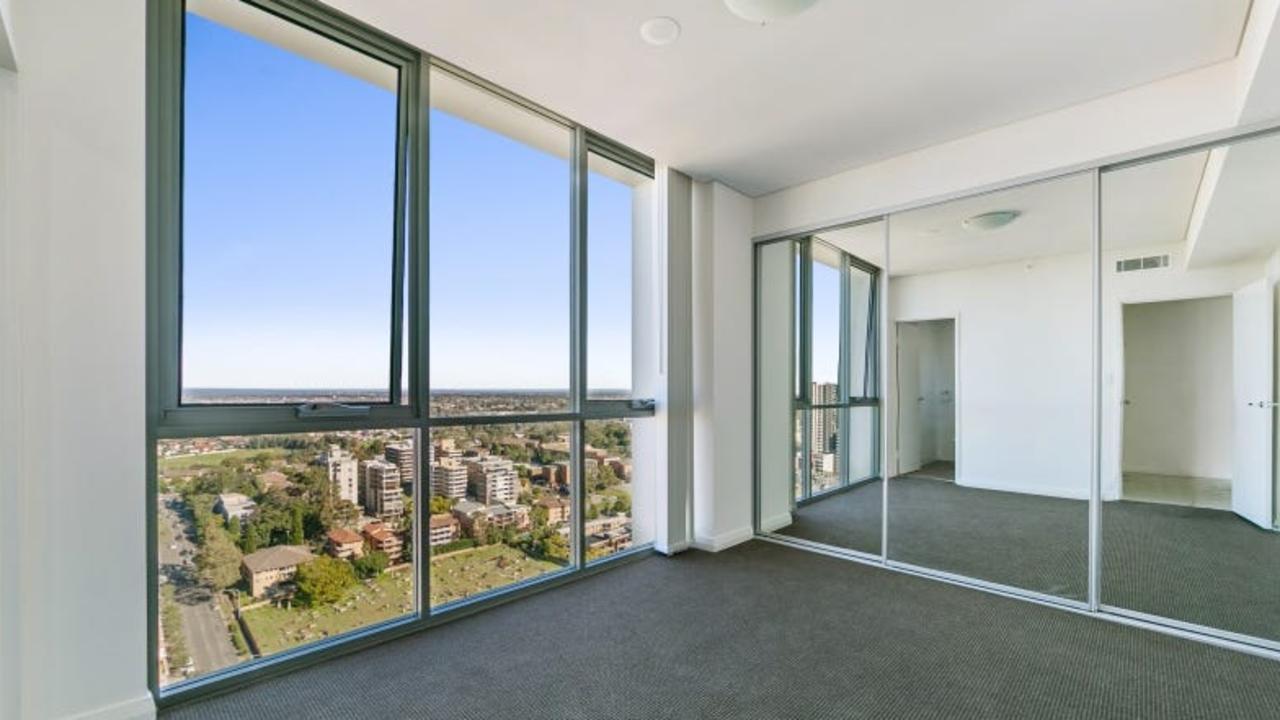
The body corporate of 133 owners is one of several hundred creditors unlikely to claw back much, if any money from what remains of Toplace, which reportedly amassed debts of $2 billion before its collapse.
Construction of the 26-storey residential complex was completed in 2016, some three years after properties were sold off-the-plan from $450,000.
A certifier signed off on works in 2017 and Parramatta City Council issued a final approval.
Less than 12 months later, the world watched on in horror as a high-rise community housing complex in London became a towering inferno.
It took fire crews almost three days to extinguish the blaze at Grenfell Tower, which spread rapidly as a result of combustible cladding on its exterior and fatally flawed fire management systems inside.
Seventy-two people died in the tragedy, which sparked a global safety review of residential complexes.
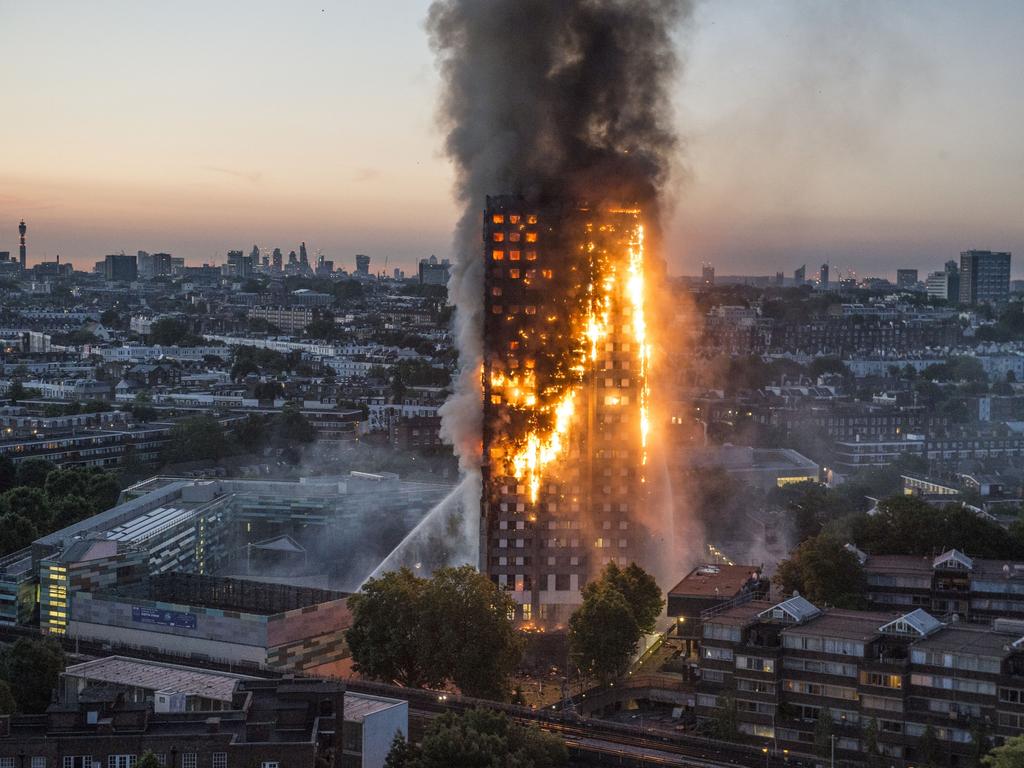
The NSW Government established a Cladding Taskforce that audited more than 4000 buildings across the state.
The vast majority were cleared by fire experts.
But those with identified issues were issued rectification orders by their local councils, with affected owners offered assistance via the State Government’s voluntary, opt-in Project Remediate.
“The cladding issue was discovered in 2019 and Toplace refused to pay,” Mr Gupta claimed.
“They fought and fought and fought, and it ended up in court, and the owners won. Then they folded, so we were left with the huge bill.”
In April 2023, then-NSW Building Commissioner David Chandler said 121 buildings would undergo cladding replacement works that year.
But 29 Hunter Street wasn’t one of them, with owners unable to stump up the expected $18 million to fund the 18-month works.
“The government told us we could volunteer for Project Remediate, which would give us a 10-year, interest-free loan, but the problem is that many people simply can’t afford to pay the repayments,” Mr Gupta said.
“Some people have simply run out of money. The loan isn’t an option. We need a lifeline from the NSW Government but they won’t come to the table.”

The clock is now running out, with Parramatta City Council likely to issue a fire order forcing action, Mr Gupta said.
“We’re told Project Remediate is voluntary but we really feel like we aren’t being given a choice.”
The body corporate recently voted unanimously to formally seek a financial bailout from the NSW Government, after a survey arranged by Mr Gupta found none felt they could manage the loan repayments.
A spokesperson for Building Commission NSW said the agency appreciated “the difficult decision” faced by owners and “is working closely with the owners corporation to fix cladding issues identified”.
“Project Remediate is a voluntary program which was established to support a range of eligible owners corporations around NSW to remediate cladding issues identified at their apartment complexes.
“As part of the program, the owners’ corporation has access to an interest-free loan for the remediation works, payable over a 10-year period. Repayments towards this interest free loan will not commence until 90 days after completion of the works.
“Residential owner-occupiers who experience difficulty in making their levy payments for their portion of the loan under Project Remediate are entitled to apply for hardship relief.
“If successful, the owner occupiers will be granted a period of deferment for the levy amounts associated with the repayment of the loan. This period of deferment is determined on a case-by-case basis and considers the individual circumstances of the owner occupier that applies.”
The government has so far directed $250 million towards Project Remediate.
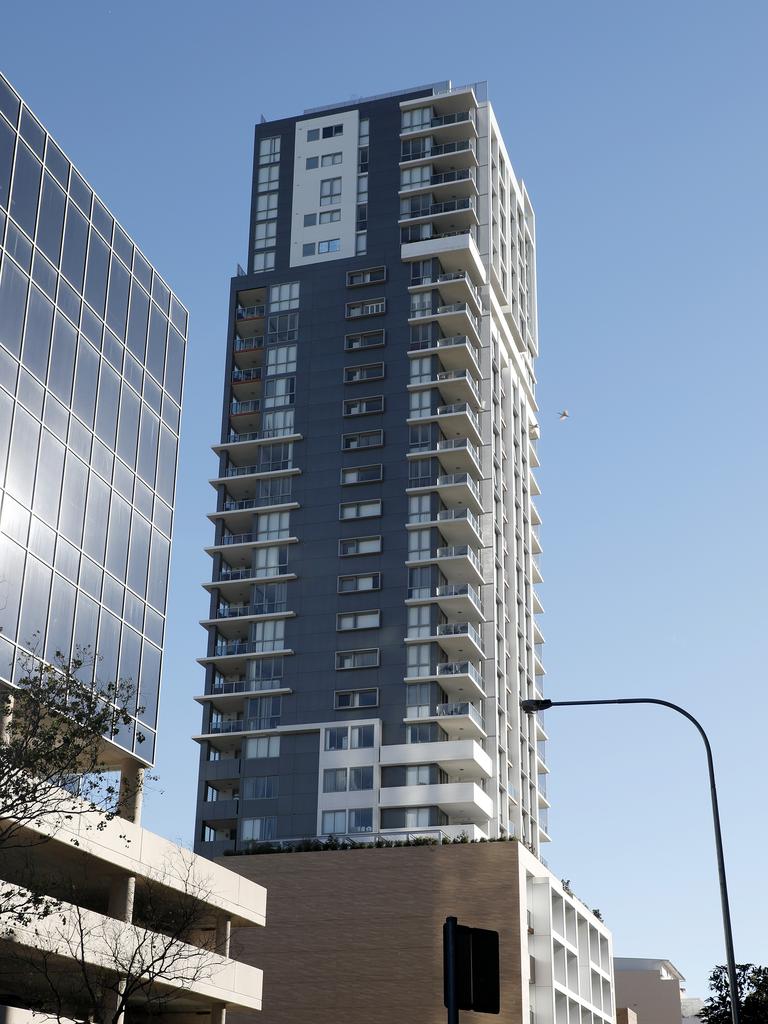

“It’s been two years since Toplace went into administration and we’re still in limbo,” Mr Gupta said. “We’re talking about single mums, retirees, young people, families, immigrants … the level of distress is very high.”
Some 20,000 homeowners from 20 different Toplace developments have been affected by the collapse.
Founded in 2009, the company was one of the biggest private developers in Sydney. Its building licence was suspended by authorities in early 2023, sparking the fall of the first domino that resulted in one of the construction sector’s biggest failures.
According to the Australian Financial Review, some $146 million is owed to strata committees for defect remediation works that were never funded.


In the weeks before he left the country, Nassif allegedly received millions of dollars in ‘loans’ from Toplace.
An investigation by The Daily Telegraph in August 2023 tracked the 55-year-old disgraced developer to the Lebanese village of Haref Ardeh, about 100 kilometres north of Beirut.
Nassif has previously denied the allegations and says he will return to Australia if police drop the arrest warrant.
The newspaper reported that Nassif lives an “open life” of luxury, whizzing around in a chauffeur-driven Mercedes Benz, decked out in “expensive suits and shiny shoes”, and splashing cash at high-end nightclubs and luxury resorts.
In recent years, the NSW Government has rolled out a series of legislative reforms to ensure new apartment complexes do not face similar issues.
“These reforms include introducing the Design and Building Practitioners Act and the Residential Apartment Buildings (Compliance and Enforcement Powers) Act, which ensure better building design and tougher regulatory enforcement powers in the event of bad practice,” the Building Commission NSW spokesperson said.






